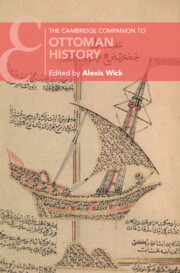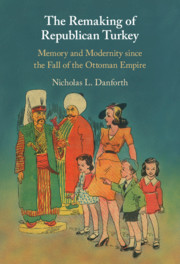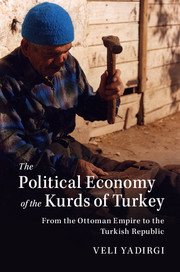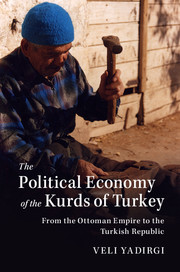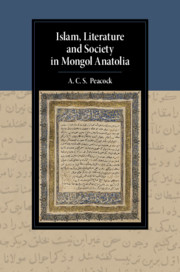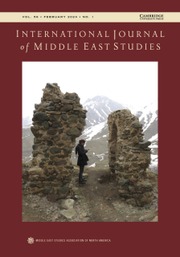The Cambridge Companion to Ottoman History
Why study Ottoman history? What are the available sources? And how can researchers begin locating, reading, and interpreting these? The Cambridge Companion to Ottoman History provides a broad introduction to the field, offering readers accessible outlines of its varied methods and approaches. Bringing together contributions from leading researchers, the volume considers the theoretical, methodological, and practical challenges faced by Ottoman historians. Including chapters from specialists in areas ranging from intellectual history to labor history and gender history, the Companion critically examines prior developments in the field, and indicates potential paths for future research. Beginning with a thorough grounding in the primary sources available, the Companion then turns to the perspectives and critical frames of the discipline. This volume is an essential teaching guide, and an invaluable entry point to the breadth and the possibilities of Ottoman history.
- Provides an accessible introduction to the methodology and theory of Ottoman history
- Examines the varied approaches taken to Ottoman and post-Ottoman studies
- Brings together essays from leading researchers across a wide range of specialisms, reflecting the current state of the field and its potential future paths
Reviews & endorsements
‘… both a relevant contribution for the contemporary historiography, but also a useful tool for the understanding of a rich culture, its values and its heritage.’ Iuliu-Marius Morariu, Astra Salvensis
Product details
March 2025Hardback
9781316514542
436 pages
229 × 152 × 24 mm
0.815kg
Available
Table of Contents
- List of Figures
- List of Tables
- List of Contributors
- Preface
- Introduction: A Life in Ottoman History Suraiya Faroqhi
- Part I. Sources and Structures:
- 1. Setting Off for the Archives Marc Aymes and Christopher Markiewicz
- 2. Literary and Biographical Sources Hatice Aynur
- 3. Chronicles and the Court: History Writing Ethan Menchinger
- 4. Letter Collections and the Central Bureaucracy Christine Woodhead
- 5. Whose Archives?: Legal Courts and the Question of the Written Document Yavuz Aykan
- 6. Visual Sources for the Study of Ottoman History Emine Fetvacı
- 7. Quantitative Data and the Economy Pınar Ceylan and Metin M. Coşgel
- 8. An Anthropologist among Ottomanists Nada Moumtaz
- Part II. Perspectives and Methods:
- 9. Rural History Stefan Winter
- 10. Labor History Can Nacar and Hatice Yıldız
- 11. Environmental History Chris Gratien
- 12. Social Networks Yonca Köksal
- 13. Digital History, GIS, and Spatial Humanities: Mapping the Historical Population Geography of Two Regions in Bulgaria, 1840–1934 M. Erdem Kabadayı, Grigor Boykov and Piet Gerrits
- 14. Ottoman Diplomacy Güneş Işıksel
- 15. Intellectual History Oscar Aguirre-Mandujano and Kerem Tinaz
- 16. Approaching Ottoman Cultural History: Affect, Performance, and Aurality Aslıhan Gürbüzel and Jacob Olley
- 17. Ottoman Science: Institutions, Genres, Materials A. Tunç Şen and Daniel A. Stolz
- Part III. Frames and Actors:
- 18. Imperial Edges and Those Who Live There: A Reconsideration of the Frontier in Ottoman History Isa Blumi and Güneş Işıksel
- 19. Capital and Province Marc Aymes
- 20. On the Shores of Empire Antonis Hadjikyriacou and Alexis Wick
- 21. Religion, Millet, and Nation Antonis Hadjikyriacou
- 22. Gender and Sexuality N. İpek Hüner and Başak Tuğ
- 23. Itinerant Ottomans: Refugees and Migrants as the Engine of an Empire's History Isa Blumi
- 24. Humans, Animals, Plants Yonca Köksal and Can Nacar
- 25. After the Ottomans? Alexis Rappas and Alexis Wick
- References
- Index.

